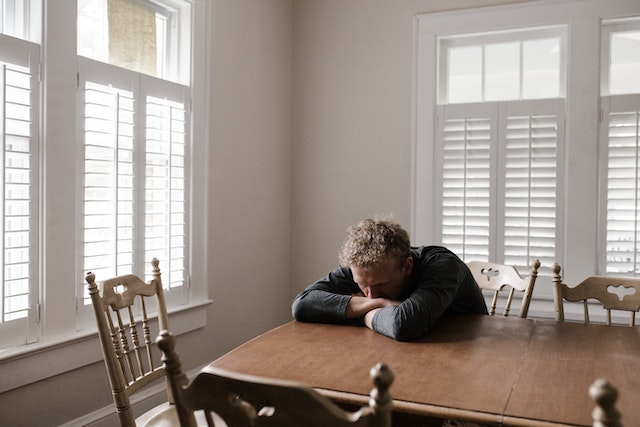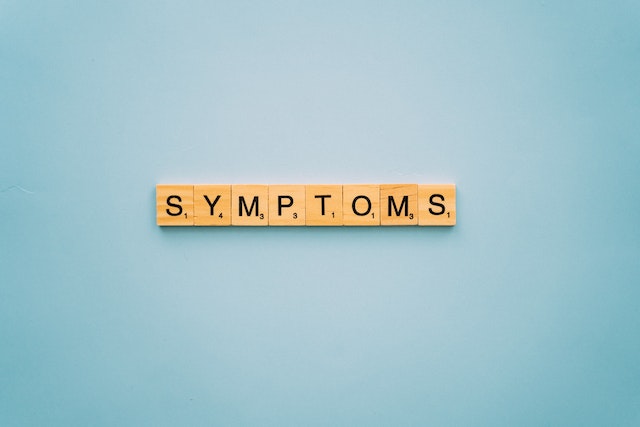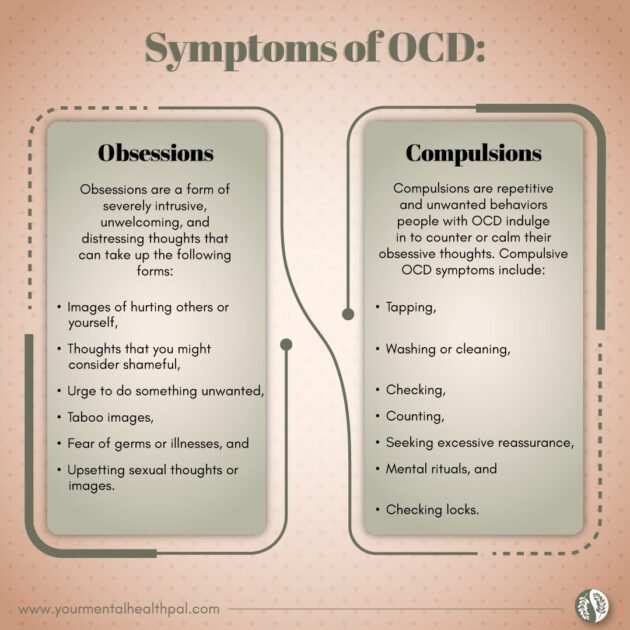Having an obsessive-compulsive disorder (OCD) is tough. Marked by uncontrollable and reoccurring thoughts and actions, OCD affects around 2% of the world’s population, as per the Anxiety & Depression Association of America (ADAA). This percentage means a whopping 6.5 million people in the US alone.
However, you wouldn’t need to know all that to answer this question – ‘What is OCD?’
In recent times, you have a whole barrage of people claiming they are soooo OCD with all their quirks and cuteness. OCD has now become the psychological equivalent of gluten sensitivity that thousands of people claim to have almost flippantly but, in most cases, don’t.
So, that friend of yours whose spotless home looks like Monica Geller’s dream house does not necessarily have OCD. Nor does that colleague who can’t stand a messy table but would be okay to live with it for a day. Nor is someone who washes their hands frequently, and so on.
Yet, unfortunately, you would find them and a whole lot of people singing merrily, ‘I have OCD.’ It has become such a big, standard part of our mainstream cultural narrative that a serious mental health condition is now a meme. People think of it as a mere obsession with cleanliness or keeping things in order, which it can be, but it’s so much more severe and complicated than this.
This unconscious and flippant use of the term is not just wrong but also extremely harmful. It invalidates people’s experiences and restricts them from truly asking for help. This is precisely why understanding what is OCD and how it affects people is important to avoid falling into the trap of common misconceptions and harmful generalizations.
To help you get started, we have compiled the ultimate guide on OCD. We’ll look deeper into what OCD means, its symptoms, diagnosis, types, and treatment options.
But before we get started, here’s something important.
Mental and neurological health are diverse and complex. They exist on a spectrum, and every individual has their own experiences. Therefore, don’t start diagnosing yourself with the knowledge you get by reading a few articles on the Internet (though we are incredibly grateful to you for stopping by to enhance your understanding of an important topic). If you find this article helpful or resonate with the symptoms explained in it, consider this as the beginning of your journey of getting the right help.
That’s it. Let’s dive in!
What Does OCD Mean?

Obsessive-compulsive disorder is a long-term and serious mental health disorder characterized by obsessions (uncontrollable thoughts) and compulsions (repetitive behavior). People with OCD feel like they have to act on these obsessions and compulsions in response to their intrusive thoughts.
Now, you might think that we all have weird thoughts and urges sometimes. So, what’s the difference between these occasional obsessive thoughts and behaviors and a full-blown OCD?
The difference boils down to three main things – frequency, intensity, and impact.
It’s common for people to have occasional obsessions that pop up in their heads and make them feel uncomfortable. People obsess over different things like personal safety, germs, etc.
But if your obsession resolves itself once the situation is managed, it’s not OCD. However, engaging in these thoughts for over an hour daily and indulging in things that make you feel better might mean you have OCD.
OCD is clubbed under anxiety disorders in the Diagnostic and Statistical Manual (DSM-V). Therefore, people have these thoughts or behaviors due to a perceived fear or threat, which could be germs, a personal concern, or any other compulsion along these lines.
The OCD Cycle
Indulging in OCD compulsions might make you feel better initially. However, the more you act on it, the greater the urge becomes. This sets in motion a vicious cycle of unhealthy thoughts and behaviors.
The cycle generally begins with an obsession. An obsession starts with any unwelcome or difficult thought. While most people would accept or ignore this thought, those with OCD start questioning its existence and meaning. This simply means that they spend much time pondering the thought. And the more they think about it, the more it feels that the thought means something. This eventually leaves them feeling stressed and anxious.
Compulsions begin when you feel like you can’t handle the negative thought. You have the strong urge to desperately make yourself feel better by doing something. When you finally do, you believe that now you will feel better.
And this might actually work for you in the beginning. But this relief won’t last. The distressing thought would return, and you would go around the cycle again. Soon, the frequency gets quicker, and the relief even more short-lived.
What Are The Symptoms Of OCD?

Symptoms of OCD fall into two different categories – obsessions and compulsions. They show up and manifest on a broad spectrum in different people. These symptoms can severely disrupt people’s lives and consume a lot of their time and energy.
Obsessions
Obsessions are a form of severely intrusive, unwelcoming, and distressing thoughts that can take up the following forms:
- images of hurting others or yourself,
- thoughts that you might consider shameful,
- urge to do something unwanted,
- taboo images,
- fear of germs or illnesses, and
- upsetting sexual thoughts or images.
Compulsions
Compulsions are repetitive and unwanted behaviors people with OCD indulge in to counter or calm their obsessive thoughts. Compulsive OCD symptoms include the following:
- tapping,
- washing or cleaning,
- checking,
- counting,
- seeking excessive reassurance,
- mental rituals,
- checking locks, etc.
Compulsive OCD symptoms are not necessarily connected to obsessions. For instance, a person might have intrusive thoughts about hurting someone and then indulge in shaking hands to relieve the distress associated with that obsession.

What Does OCD Look Like?
While OCD is one of the most talked about mental health conditions, it is also one of the most misunderstood ones. A lot of projections of OCD make it look like a quirky personality trait. It’s believed to be a one-dimensional disorder that has been extensively monetized (check the obsessive Christmas disorder t-shirts online) over the years.
But if that’s wrong, what does having OCD actually mean?
For starters, it is not as cute or lively as movies make it seem. It is, in fact, an incredibly isolating and challenging condition. OCD symptoms can cast a huge shadow on a person’s life and impact every aspect of their life. They can affect your:
- relationships,
- self-esteem,
- professional or academic life,
- daily routine,
- self-confidence, and
- social life.
What Causes OCD?
With a calculated lifetime prevalence of around 1-3%, people from all ethnicities, genders, and backgrounds can develop OCD. It tends to develop around adolescence or in early adulthood. OCD is described as a neurological condition, and scientists are still figuring out how it develops.
One of the most probable causes of OCD is believed to be genetic variations that affect the brain’s neural pathways. Traumatic brain injuries, bacterial or viral infections, and stress are also contributing factors. Usually, all these factors converge along with a person’s environment, leading to a gradual growth of symptoms. A rapid onset of the conditions is extremely uncommon.
How Is OCD Diagnosed?
OCD diagnosis is not as easy as people claim it to be.
Medical professionals use the criteria listed in the DSM-V to make a proper diagnosis. As per the DSM-V, the criteria for OCD diagnosis include the following:
- Having compulsions, obsessions, or both.
- Being significantly distressed and disturbed due to these thoughts and behaviors.
- Compulsions and obsessions take up more than an hour of your time daily.
Even with these criteria, OCD misdiagnosis is widespread. As per a study in the Journal of Clinical Psychiatry, half of the physicians misdiagnosed OCD while reading patient’s symptoms online.
What Does OCD Treatment Look Like?

Dealing with OCD is tough. However, proper treatments and professional care can help manage the symptoms better. According to research by JAMA Network, the best treatments for OCD include:
1. Therapy
The most common treatment line for OCD includes a form of cognitive-behavioral therapy called exposure and response prevention (ERP). Multiple clinical trials have found this to be an effective treatment for OCD.
People with OCD feel that something terrible might happen if they don’t act on their compulsions. Using ERP, a therapist guides patients to gradually manage their obsessions without giving in to their urges. This can slowly reduce the impact of obsessive thoughts.
2. Medication
Medications are used along with therapy for OCD treatment. Some people feel better using medicines, especially serotonin reuptake inhibitors (SRPs).
Disclaimer: The above-suggested medications should only be used after proper diagnosis and discussion with professionals. Unregulated use can be life-threatening.
Conclusion:
If you listen to the chatter around you, you might find ten different and mostly incorrect answers to ‘What is OCD.’ But here’s the bottom line – if you have a gratifying obsession about organizing your books by color, cleaning your home, or whatever else makes you feel better but don’t have disturbing and intrusive obsessive thoughts about it, consider yourself extremely lucky. And please stop throwing around sentences about how OCD you are.
But, if reading this blog post made you feel like you might have OCD, take a deep breath and calm down. As scary as it feels right now, just remember that millions of people around you struggle with the disorder and get better every day. While the road is complicated and long, proper professional help and self-care are the right way forward.
Access to professional help is now easier than ever. With online therapy, you can experience the comfort of therapy right from your home. To learn more about the top online platforms, click here.
To continue learning about mental health, subscribe to Your Mental Health Pal.

